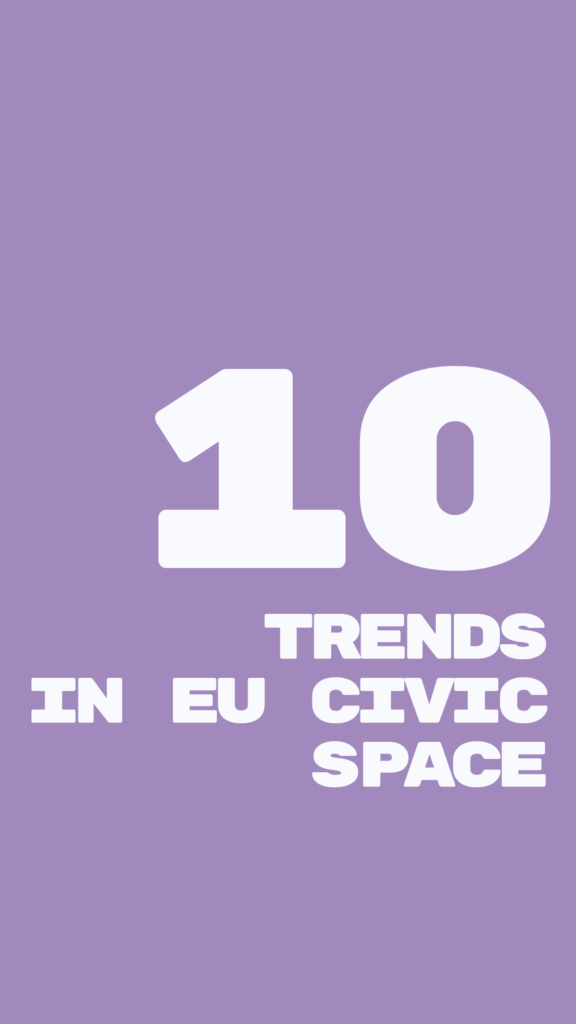When we planned this publication, we were living in a different world. War in Europe was for many of us, if not distant memory, at least a matter of “dealing with the past”.
As every year, we awarded the outstanding stories told in this report because we believe that in a context of growing challenges against rights and democracy, it is crucial to recognise and praise the tremendous civic energy that stands for equality and solidarity and strives to defend the democratic foundations of our living together.
Of course, this recognition cannot be limited to meddles and nice words; it has to translate into policies that nurture civil society and allow it to act in full independence and capacity. Today, we find ourselves in a situation where words such as “pride” and “celebration” are in contrast with the dark times we are living in, the fear and sense of powerlesness we all feel.
In the 2020 Civic Space Watch report, we looked at how the COVID-19 pandemic deepened democratic, rule of law and socio-economic challenges underpinning the shrinking and shifting civic space phenomenon. In 2021, we observe that the general sense of trust in the collective capacity of institutions to find an inclusive way out of the crisis and build back better seems to have been worn down by the growing fears for the socio-economic impact of restrictions, especially among lower-income populations. The report showcases 10 trends in civic space, as well as 6 inspiring testimonies and case studies with outstanding civic initiatives.

The European Union is expected to be proactive in the current democratic backsliding, supporting and speaking out for civic actors under pressure. Nevertheless, European civic space is becoming a contested space, although important victories and positive steps for rights for all have also taken place in the course of the year providing some hope.
The report highlights 10 aspects of the challenges civil society faced throughout the year 2021, the victories it achieved and the growing European dimension of the struggle for plural and vibrant civic space:
Copyright 2021 Civic Space Watch | powered by Riviera Interactive
| Cookie | Duration | Description |
|---|---|---|
| cookielawinfo-checkbox-analytics | 11 months | This cookie is set by GDPR Cookie Consent plugin. The cookie is used to store the user consent for the cookies in the category "Analytics". |
| cookielawinfo-checkbox-functional | 11 months | The cookie is set by GDPR cookie consent to record the user consent for the cookies in the category "Functional". |
| cookielawinfo-checkbox-necessary | 11 months | This cookie is set by GDPR Cookie Consent plugin. The cookies is used to store the user consent for the cookies in the category "Necessary". |
| cookielawinfo-checkbox-others | 11 months | This cookie is set by GDPR Cookie Consent plugin. The cookie is used to store the user consent for the cookies in the category "Other. |
| cookielawinfo-checkbox-performance | 11 months | This cookie is set by GDPR Cookie Consent plugin. The cookie is used to store the user consent for the cookies in the category "Performance". |
| viewed_cookie_policy | 11 months | The cookie is set by the GDPR Cookie Consent plugin and is used to store whether or not user has consented to the use of cookies. It does not store any personal data. |